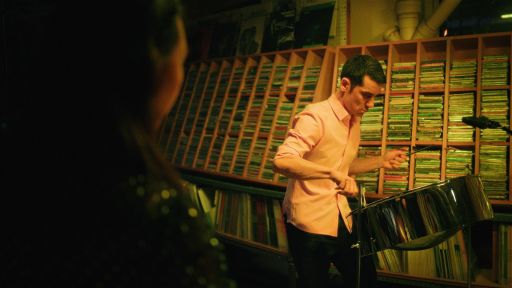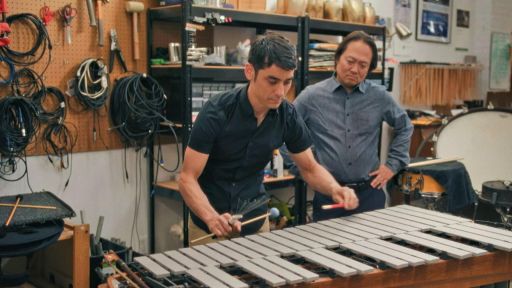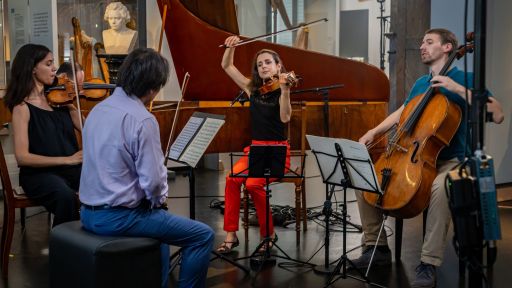Composer Andy Akiho explains to host Scott Yoo why he loves the steelpan drum. Both then play his piece “Deciduous.”
Features



Speaking of found sounds like, I think the roots of this, you know, I'm not a historian anything, but I you know, I know that all these kind of things kind of grew into this and there being a ton of 55 gallon oil drums in Trinidad.
And they got the idea to to pound it in - it used to actually go this way convex versus concave.
And...
So this is a steel drum that's been cut?
Yeah.
And this used to be the top and used to be flat?
And this was down...
They bang it enough?
Yeah.
It goes down.
Yeah.
And they used to do all that by hand.
Now they have machines.
It's like a hammer machine to get it.
And then you got to shape the bowl.
They have a very specific kind of pattern, you know?
So this is a circle of fifths, right?
So it's like a middle C in the keyboard on the piano.
Right.
G. D A.
And this goes... And then the octaves are here so you get about two and a third octaves on this instrument.
So when you write for cello for the first time or violin for the first time, would you combine it with steel pan in order to sort of be at home?
Yes, a little bit.
Yeah, that was that was kind of my start writing for my friends.
And it was just a natural process.
Being a composer, performer, really primarily a performer, I wanted to write more for this instrument so I could perform with my friends.
You know, it's fantastic.
You're building, you're building the catalog for your instrument.
Yeah, yeah.
You wrote something for violin and steel drum, right?
Yes.
Let's play it.
Awesome.
♪♪
You May Also Like






